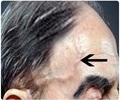Recent findings have revealed that frequent or severe headaches in children are associated with, mental health issues, notable pain and functional limitations.
Recent findings have revealed that frequent or severe headaches in children are associated with, mental health issues, notable pain and functional limitations.
The results of the study have been published in the medical journal Pediatrics. Dr. Tara W. Strine and colleagues from the Centers for Disease Control and Prevention, Atlanta conducted the research.The study was based on the results of the evaluation of 9,264 children between the ages of 4 and 17 years who were part of the National Health Interview Survey. The study was based on responses to the Strengths and Difficulties Questionnaire.
The researchers noted that headaches were common both among children and adolescents, particularly migraine and tension-type headaches. ’They contribute to missed school days, affect children's peer and family relationships, and significantly impact children's quality of life, often times into adulthood,’ said Strine.
It was found that about 6.7 percent of the children had experienced frequent or severe headaches over the previous 12 months. They were mostly white, non-Hispanic, older children living in or near poverty.
Such children were 3.5 times more likely to have a higher level of emotional symptoms, 2.5 times more likely to have conduct problems, 2.6 times more likely to have symptoms of hyperactivity or inattention and 1.7 times more likely to have peer problems than children who did not suffer from headaches.
The high levels of impairments, about 2.7 times more frequent in children with headaches than the others indicated potential mental health difficulties. The study has also noted that these children were also 2.9 times more likely than children without headaches to be upset or distressed by their difficulties and to have these difficulties interfere with their home life, friendships, classroom learning, and leisure activities.
Advertisement
The authors note that compared to 1.9 percent of children without headaches, 5.6 percent of the children with headaches were currently receiving special education services for emotional or behavioral problems.
Advertisement











